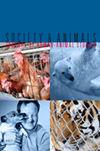Divergent Approaches Regulating Beta Agonists and Cloning of Animals for Food: USA and European Union
IF 1
4区 农林科学
Q4 SOCIOLOGY
引用次数: 3
Abstract
Technologies being used to produce nonhuman animals who are used for meat and dairy products are viewed by some people as meaningful. Two technologies receiving scrutiny in agriculture are beta agonists that are fed to food animals to improve weight gain and cloning animals to secure offspring with specific traits. The technologies enhance the productive capacities of animals so that fewer resources are needed to produce meat and dairy products. Yet consumers are not sure they want food products with beta agonist residues and that are produced from clones. In overseeing the safety of food products and animals, legislators and regulators in the United States (US) and European Union (EU) have developed contrasting provisions regarding the usage of these technologies. An evaluation of heuristics involving information and experiences with bovine spongiform encephalopathy and animal production technologies offers support in explaining the US’s and EU’s divergent provisions.调节β激动剂的不同方法和食品用动物的克隆:美国和欧盟
一些人认为,用于生产肉类和乳制品的非人动物的技术很有意义。在农业中受到审查的两项技术是β激动剂,它们被喂养给食用动物以改善体重增加,以及克隆动物以确保具有特定特征的后代。这些技术提高了动物的生产能力,从而减少了生产肉类和乳制品所需的资源。然而,消费者并不确定他们想要的是含有β激动剂残留物的克隆食品。在监督食品和动物的安全方面,美国和欧盟的立法者和监管机构制定了关于这些技术使用的对比条款。对涉及牛海绵状脑病和动物生产技术的信息和经验的启发法的评估为解释美国和欧盟的不同条款提供了支持。
本文章由计算机程序翻译,如有差异,请以英文原文为准。
求助全文
约1分钟内获得全文
求助全文
来源期刊

Society & Animals
社会科学-兽医学
CiteScore
1.40
自引率
12.50%
发文量
46
审稿时长
>12 weeks
期刊介绍:
Society & Animals publishes studies that describe and analyze our experiences of non-human animals from the perspective of various disciplines within both the Social Sciences (e.g., psychology, sociology, anthropology, political science) and the Humanities (e.g., history, literary criticism).
The journal specifically deals with subjects such as human-animal interactions in various settings (animal cruelty, the therapeutic uses of animals), the applied uses of animals (research, education, medicine and agriculture), the use of animals in popular culture (e.g. dog-fighting, circus, animal companion, animal research), attitudes toward animals as affected by different socializing agencies and strategies, representations of animals in literature, the history of the domestication of animals, the politics of animal welfare, and the constitution of the animal rights movement.
 求助内容:
求助内容: 应助结果提醒方式:
应助结果提醒方式:


